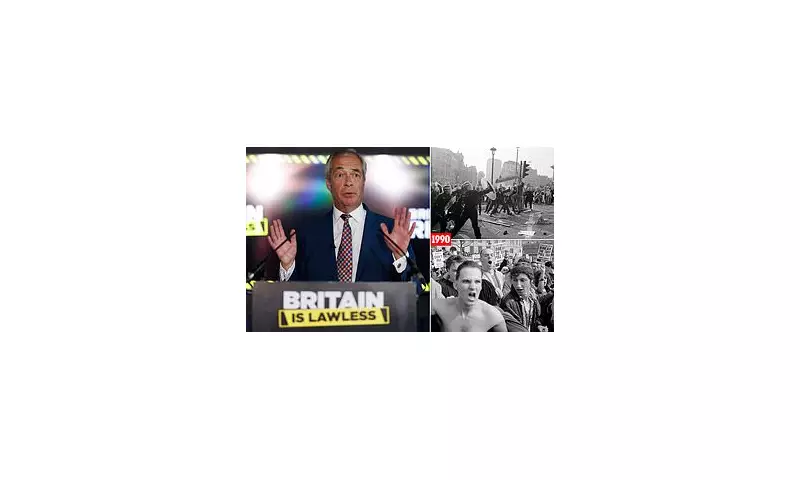
Brexit architect Nigel Farage has issued a stark warning that Britain faces civil unrest surpassing the violent Poll Tax riots of 1990 unless the government takes drastic action on illegal immigration. The Reform UK leader demanded immediate implementation of five deportation flights per day to address what he calls a "national emergency."
A Nation on the Brink
Speaking with grave concern, Farage drew chilling parallels to historic civil disturbances, suggesting the current migration crisis could trigger even greater social upheaval than the infamous Poll Tax protests that saw widespread violence across London and other British cities.
"The level of civil unrest, the level of anger, will be on a scale we have not seen since the poll tax riots," Farage declared, adding ominously, "And I suspect it will be even worse."
The Five Flights Solution
The political firebrand presented a stark solution to the Channel crossing crisis: the immediate commencement of five daily removal flights targeting illegal migrants. This aggressive approach, he argues, would serve as the only meaningful deterrent to those considering the dangerous journey across the English Channel.
Farage's comments come amid growing public frustration with the continuing influx of small boats arriving on Britain's shores, with record numbers making the crossing despite government promises to "take back control" of Britain's borders.
System Overwhelmed
The immigration system faces unprecedented pressure, with processing centres overwhelmed and accommodation costs skyrocketing into millions of pounds daily. Farage highlighted the staggering financial burden, stating the crisis is "costing the British taxpayer £6 million a day in hotel bills alone."
This financial revelation underscores the scale of the challenge facing authorities and adds economic weight to Farage's warnings of impending social unrest.
A Warning to Westminster
Farage's intervention represents both a prediction and a warning to the Conservative government. His message resonates particularly strongly with communities feeling the direct impact of migration pressures and with voters who supported Brexit primarily for its immigration control promises.
The comparison to the Poll Tax riots—which marked the beginning of the end for Margaret Thatcher's premiership—serves as a particularly potent political warning about the potential consequences of perceived policy failure on this explosive issue.
As the debate intensifies, all eyes remain on the government's response to both the migration challenge and these stark warnings about the social stability of the nation.





